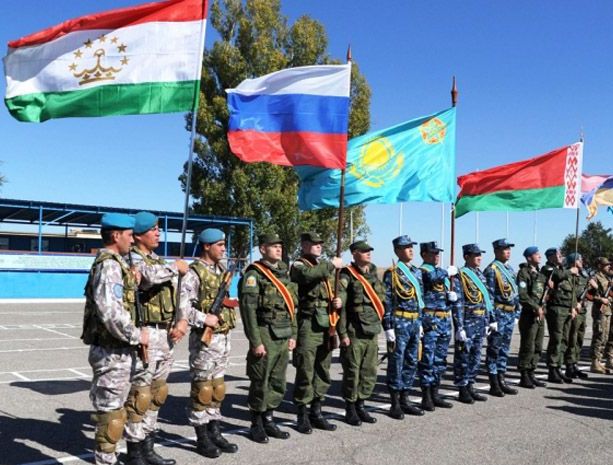The CSTO (Collective Security Treaty Organisation) alliance, founded in 1992, was a military alliance between Russia, Armenia, Tajikistan, Kazakhstan, Belarus and Kyrgyzstan – the equivalent of the Western NATO alliance.
However, over time, there have been signs that cracks may have started to appear within it. Mike Wong discusses whether the alliance has ultimately broken down, or if this is solely a rumour.
The CSTO summit in Yerevan on November 24th 2022 was seen as a diplomatic embarrassment for Vladimir Putin. Nikol Pashinyan, the Prime Minister of Armenia, lashed out at the CSTO for not doing enough to support Armenia. He claimed that the CSTO (though, mostly Russia), was being complicit in failing to stop Azerbaijan from attacking Armenia, when Azerbaijan launched another offensive towards the country in September 2022.
The CSTO alliance’s response to this, was to do nothing. Russia refused to provide any direct military support to Armenia. In doing so, they implied that Nagorno-Karabakh is not in Armenia, but rather in Azerbaijan; as Azerbaijan claims and as is internationally recognised, despite it having a large Armenian ethnic population.
KYRGYZSTAN GAVE NO OFFICIAL REASON FOR THE CANCELLATION [OF CSTO MILITARY EXERCISES]
Pashinyan also refused to sign a draft declaration during the summit and intended to distance Armenia from the Russian invasion of Ukraine, seeing how many world leaders were isolating themselves from Putin. Even countries close to Russia – such as China and India – have directly raised concerns and alarm as to how the war in Ukraine was progressing.
The CSTO military exercises, that were supposed to be held in Kyrgyzstan in October 2022, were cancelled. This led to dissatisfaction from the Russian hardliners (though not from the Russian government). Kyrgyzstan gave no official reason for the cancellation, but it is believed to be due to Tajikistan’s participation. After border clashes with Tajikistan, which resulted in 100 deaths, Kyrgyzstan felt the CSTO should have taken a stronger role in preventing this bloodshed.
“UNDERMINE PEACE AND HARMONY BETWEEN THE PEOPLES OF THE COUNTRIES OF CENTRAL ASIA”
There were also concerns over Tajik President, Emomali Rahmon receiving an award from Putin “for provision of regional stability and security” on October 4th – the day before Rahmon celebrated his own 70th birthday. The Kyrgyz foreign ministry spokesperson, Chingiz Kustebaev, said on Facebook, “It is interesting what kind of regional security one can talk about when year to year the actions of the leadership of Tajikistan undermine peace and harmony between the peoples of the countries of Central Asia.”
Kazakhstan – another member of the CSTO alliance – did not endorse, but also did not condemn Russia’s decision to invade Ukraine. This was despite requesting and receiving direct CSTO and Russian military intervention when protests erupted there in January 2022. Kazakhstan blamed “foreign terrorists” for backing the protestors, and got CSTO assistance in suppressing the uprising.
KAZAKHSTAN […] REFUSED TO ACKNOWLEDGE LUHANSK AND DONETSK PEOPLE’S REPUBLICS
When Russia invaded Ukraine on February 24th 2022, only Belarus provided support and endorsement for Russia’s actions, blaming NATO for it. Armenia and Kyrgyzstan also chose to adopt a neutral stance and instead emphasised the need for peace talks and the necessity of dialogue between Russia and Ukraine.
Tajikistan abstained in UN Resolutions condemning Russia’s actions in Ukraine, but did not support the UN Resolution that demanded Russia be removed from the Human Rights Council. This was the same stance adopted by Kazakhstan, Kyrgyzstan and Belarus. The President of Kazakhstan, Kassym-Jomart Tokayev, refused to acknowledge Luhansk and Donetsk People’s Republics (the Russian separatist states backed by Moscow) and later, the annexations of the Russian occupied territories.
President Tokayev argued that “If the right to self-determination is put into practice all over the world, then there will be over 600 countries instead of the 193 states that are currently members of the United Nations. Of course, that would be chaos.”
THEY MAY HAVE DECIDED TO GRADUALLY TURN THEIR ATTENTION TO CHINA
It appears that Kazakhstan, alongside other Central Asian CSTO members, including Armenia, are becoming incerasingly disillusioned. They have realised, as the war in Ukraine dragged into 2023, that the Russian economy is in very bad shape, as is the Russian military, with them losing the city of Kherson and the Kharkiv Oblast. Moreover, the tough Western sanctions imposed on Russia are still seen as weak and insufficent amongst hardliners in Ukraine and the West. CSTO states may feel that they cannot rule out worse to come.
Thus, they may have decided to gradually turn their attention to China – the closest alternative geopolitical superpower on issues such as trade, economic cooperation, and investment – rather than rely on Russia in the long run. They also did turn to the US for closer economic relations at the same time, potentially to avoid Western antagonisation or benefit from playing one power off against another.
In conclusion, despite some of the cracks in the CSTO alliance appearing, it still stands today. Even though countries, such as Armenia and Kazakhstan, hold grievances or don’t exactly follow Russia’s line, the CSTO alliance still currently exists. Nevertheless, it remains to be seen whether the CSTO alliance will be able to hold out throughout 2023, and whether any more mishaps or cracks start to appear as they had in 2022.
Source : Impact Nottingham


